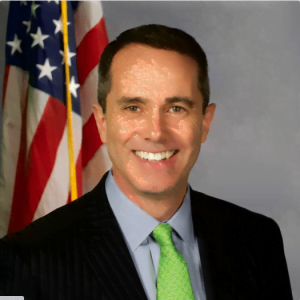The Bucks County Beacon recently published what purported to be a news story on the passage of Senate Bill 780, a piece of legislation that addresses homeless encampments. I say purported, because in the second paragraph of the piece, its author abruptly veers from reporting to editorializing by alleging that state lawmakers were “joining in” on the cruel treatment of homeless people. The piece then goes on to present only the side of those people and organizations that are opposed to the bill. In fact, the reporter made no attempt to contact my office, or as far as I know, the offices of any of the other state senators who voted for the legislation let alone any organizations that might support it.
Needless to say, this is not the kind of journalism that I have come to expect from the Beacon. As such, I find it deeply disappointing.
Given the obvious bias behind the piece, I wanted to take this opportunity to explain my point of view on the issue, and why I voted for the bill.
First, much of the commentary against the bill is premised on the notion that somehow these encampments are good for homeless people. They are not. They frequently create unsafe and unsanitary environments both for the people that live in them and for surrounding communities. A case in point is the encampment that exists at various times in the woods surrounding the Bucks County Community College’s Lower Bucks Campus in Bristol Township. It poses a health and safety risk both to the people who periodically live there and to the students and staff of the college.
I have long supported increased funding for mental health and addiction services as well as expanded housing for homeless people. Yes, it’s possible to be an advocate for the homeless, and believe that these encampments are not a good idea for either them or our communities.
So, what does SB 780 do?
To begin, it is important to understand that SB 780 only applies in cases in which (i) the owner of the property in question has not authorized the encampment, and (ii) the encampment is a nuisance. The term nuisance is defined as a nuisance under common law and “[i]nsufficient facilities to meet sanitation needs. (2) Visible, dangerous or unsanitary accumulation of camping paraphernalia, abandoned belongings, garbage or human waste. (3) Open fires. (4) Open air drug markets, visible drug use or accumulation of drug paraphernalia.”
If both of those conditions are met, SB 780 provides municipalities with a humane, common-sense process to manage public safety issues related to encampments — those safety issues arise most notably when the encampments are near roadways, parks, and schools. It does not criminalize homelessness; there are no criminal sanctions in the bill. Instead, it establishes a structured process for local governments to act responsibly. The bill explicitly requires municipalities to make “good-faith efforts” to connect individuals to shelter, outreach, and services before any action is taken. The goal is not displacement—but a humane transition into housing and support networks whenever possible.
PHOTO ESSAY: Bucks County Code Blue Shelter Helps Protect Local Homeless from Life-Threatening Cold Temperatures
SB 780 does not impose new financial burdens on local governments. Instead, it clarifies existing authority under state law, encouraging municipalities to coordinate with nonprofit and county partners to assist individuals, and builds in reasonable timelines before any enforcement can occur. It also provides a framework for private property owners to act and gives residents impacted by an unauthorized encampment (again, defined as an encampment that the property owner has not permitted, and which constitutes a nuisance) to take action if no other party is doing so.
I share the concern about traumatic encampment sweeps. SB 780 includes clear protocols designed to minimize harm by requiring notice and coordination with outreach providers so that camps aren’t disrupted without advance warning and so that personal belongings can be safeguarded.
Encampments are not a solution to the problem of homelessness. They are the result of a social services system that has been underfunded for far too long. While the legislature should deal with the problem of encampments, it must also increase funding for mental health and addiction services and provide for safe, accessible housing for those experiencing homelessness. I will continue to be an advocate for all of those things.







